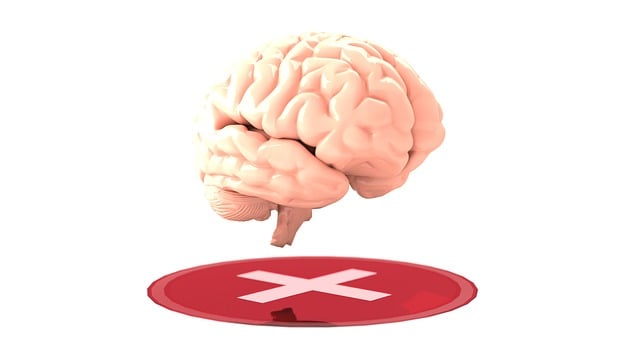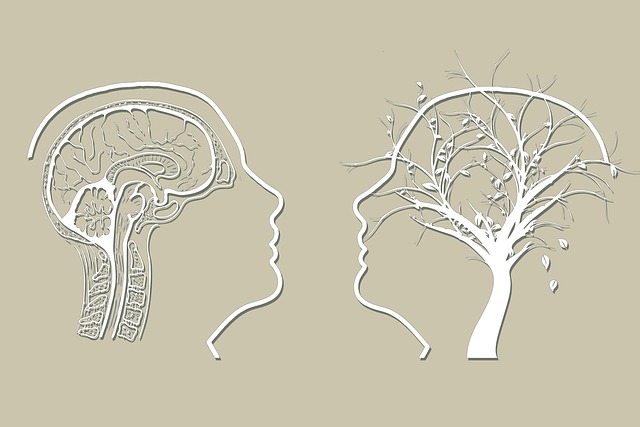In today's stressful world, Lakewood Somatic Experiencing (SET) therapy offers a unique, holistic approach to mental wellness by focusing on the mind-body connection. SET techniques, including compassion cultivation and confidence-boosting practices, empower individuals to actively manage their emotional well-being. Integrated into self-assessment tools, SET principles enhance evaluation accuracy by moving beyond traditional Q&A to include body-oriented practices for deeper feelings exploration. These tools, designed with interactive features and cultural sensitivity, foster positive mental health outcomes, providing personalized feedback, coping strategies, and empowerment for users managing their mental wellness journeys.
Mental wellness self-assessment tools are gaining prominence as individuals seek more accessible and private ways to evaluate their psychological well-being. This article explores the development of such tools, focusing on integrating principles from Lakewood Somatic Experiencing Therapy (SET). We’ll delve into designing effective, user-friendly assessments while emphasizing accessibility, privacy, and ethical considerations in the digital age. By combining traditional self-reflection with SET’s somatic techniques, these tools aim to enhance mental wellness assessment experiences.
- Understanding the Need for Self-Assessment Tools in Mental Wellness
- Incorporating Somatic Experiencing Therapy (SET) Principles into Self-Assessments
- Designing Effective and User-Friendly Mental Wellness Self-Assessment Tools
- Promoting Accessibility, Privacy, and Ethical Considerations in Digital Mental Health Assessments
Understanding the Need for Self-Assessment Tools in Mental Wellness

In today’s fast-paced world, maintaining mental wellness is more crucial than ever. However, many individuals face challenges in recognizing and understanding their emotional states, often due to the complex interplay of stress, lifestyle, and cultural factors. This is where self-assessment tools play a pivotal role. They serve as powerful resources for individuals to gain insight into their mental health, serving as early warning signs or indicators of potential issues.
For instance, Lakewood Somatic Experiencing Therapy (SE) offers such tools, focusing on the connection between body and mind. SE integrates compassion cultivation practices and confidence-boosting techniques, ensuring that self-assessments are not just diagnostic but also therapeutic. By empowering individuals to take an active role in their mental wellness, these tools promote proactive healing, enabling people to better navigate life’s challenges with enhanced cultural competency, as supported by healthcare provider training.
Incorporating Somatic Experiencing Therapy (SET) Principles into Self-Assessments

Incorporating principles from Lakewood Somatic Experiencing Therapy (SET) into self-assessment tools can significantly enhance their effectiveness in mental wellness evaluation. SET focuses on the profound connection between our bodies, emotions, and thoughts, providing a holistic approach to understanding and addressing psychological distress. By integrating SET techniques, these assessments move beyond traditional question-and-answer formats to include body-oriented practices that encourage individuals to explore and express their feelings more profoundly. This approach can facilitate deeper self-awareness, especially in areas like self-esteem improvement, which often has physical manifestations.
Moreover, Compassion Cultivation Practices, a core component of SET, can be incorporated to foster a sense of self-compassion during the assessment process. Mental health education programs design should consider these practices to create a supportive environment where individuals feel safe to confront and reflect on their mental health challenges. This not only improves the accuracy of self-assessments but also promotes positive mental health outcomes, ensuring that the tools serve as more than just diagnostic aids but also therapeutic interventions in their own right.
Designing Effective and User-Friendly Mental Wellness Self-Assessment Tools

Designing effective and user-friendly mental wellness self-assessment tools is a meticulous process that demands careful consideration of various factors to ensure accurate evaluations and meaningful insights. These tools, such as those offering Lakewood Somatic Experiencing Therapy (LSET) techniques, play a pivotal role in empowering individuals to take charge of their mental health journey. By incorporating interactive features and intuitive interfaces, self-assessment platforms can enhance user engagement, making complex concepts accessible and practical.
When developing these tools, it’s essential to integrate various components like Coping Skills Development modules, Self-Awareness Exercises, and sections focusing on Self-Esteem Improvement. These elements should be presented in a structured manner, guiding users through different aspects of their mental wellness. A well-designed assessment should provide personalized feedback, offer practical strategies for self-improvement, and foster a sense of empowerment, ultimately facilitating individuals’ path towards holistic mental health and well-being.
Promoting Accessibility, Privacy, and Ethical Considerations in Digital Mental Health Assessments

In developing digital mental wellness self-assessment tools, promoting accessibility is paramount to ensure that a diverse range of individuals can benefit from them. This includes making sure the tools are user-friendly for people with different abilities, such as those with visual or hearing impairments. For instance, incorporating features like screen readers compatibility and closed captioning in video content can significantly enhance accessibility. Moreover, considering cultural sensitivity is crucial to avoid exacerbating existing mental illness stigma. Tools should be designed to respect diverse cultural beliefs and values related to mental health, ensuring they resonate with users from various backgrounds.
Privacy and ethical considerations are also fundamental in digital mental health assessments. Protecting user data through robust security measures is essential, especially as these tools often involve sensitive personal information. Users should have control over their data, including the ability to access, correct, or delete it. Additionally, transparency about how data is collected, stored, and used is critical to building trust. Incorporating privacy policies that align with regulations like GDPR or HIPAA, coupled with clear consent mechanisms, can help ensure ethical practices in digital mental wellness assessments, enhancing user comfort and fostering a positive environment for coping skills development, as advocated by approaches like Lakewood Somatic Experiencing Therapy.
The development of mental wellness self-assessment tools is a vital step towards improving access to care and promoting individual well-being. By incorporating innovative approaches like Somatic Experiencing Therapy (SET) principles, these tools can offer valuable insights into an individual’s mental health status. As we move forward, prioritizing user-friendliness, accessibility, privacy, and ethical considerations in digital assessments is crucial to ensure the effectiveness and impact of these resources, such as those offered by Lakewood Somatic Experiencing Therapy.














